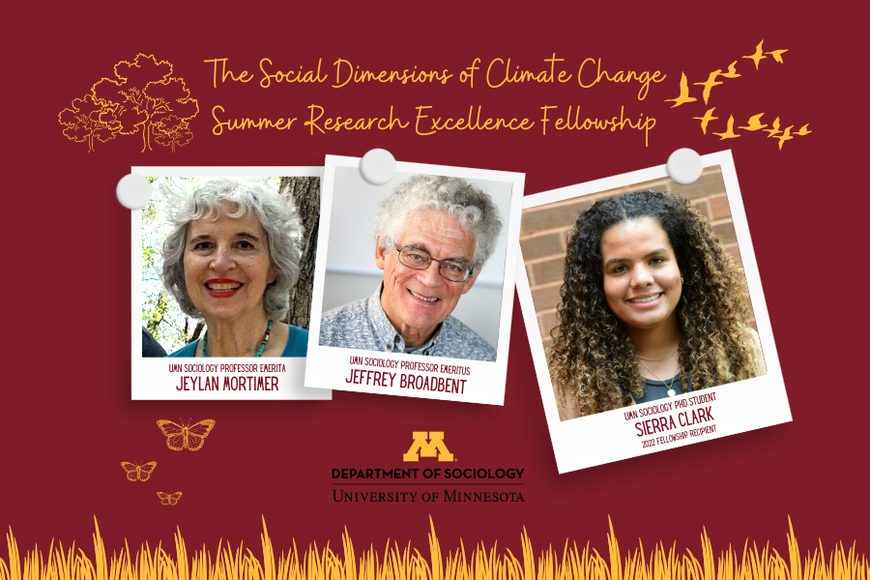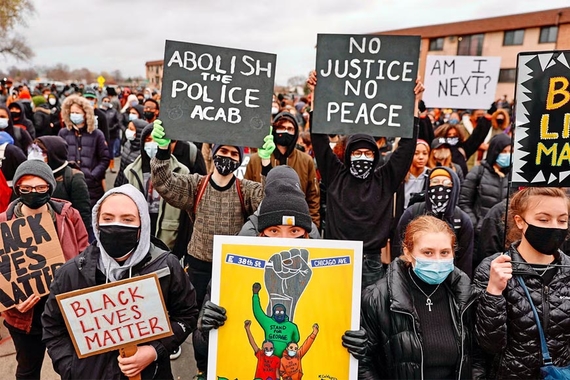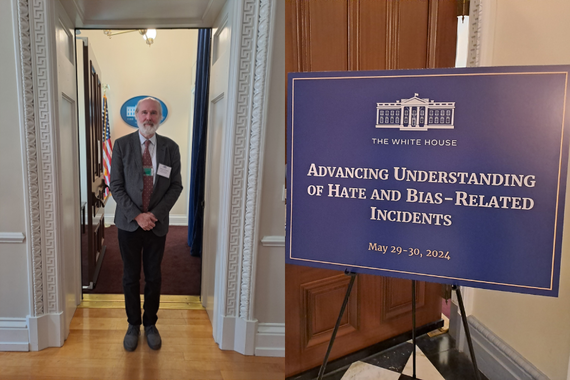The NEW Social Dimensions of Climate Change Summer Research Excellence Fellowship
Established in 2022 with generous support from Sociology Emeriti Faculty Jeffrey Broadbent and Jeylan Mortimer, the new Social Dimensions of Climate Change Summer Research Excellence Fellowship supports a graduate student in Sociology whose summer research project focuses on the social dimensions of climate change.
Climate scientists predict that intensifying planetary warming will cause ever more frequent severe weather events, droughts, and water shortages. These are already having devastating impacts on human populations that are likely to accelerate in the coming years. It is becoming increasingly evident that our planet’s capacity to support human civilization is eroding. This problem can be approached from multiple levels of sociological analysis, from macro-level studies of whole societies, to meso-level studies of organizations, to micro-level research on individual attitudes and values. Broadbent and Mortimer strongly believe that the field of sociology can advance research and thinking about climate issues and have created this fellowship to support students whose research is at the intersection of sociology and climate change.
The Fellowship's first recipient, Sociology PhD student Sierra Clark, has developed a research interest in the racialization of green space. Characterized by natural surfaces, settings, activities, and greenery, green space is generally considered to be a desirable space connected to environmental privilege. Connecting the topic to broader sociological conversations about environmental justice, the racialization of space, the construction of whiteness, and settler colonialism, Sierra’s interest stems in part from her personal experiences growing up as a black woman in the extremely racially segregated city of St. Louis, and learning about disturbing events across America related to the policing of black bodies; not only in “gritty urban settings,” but in green spaces as well. Her research on this topic will contribute to the understanding of how climate change affects different populations (based on race, socioeconomic status, age, etc.) and can inform solutions on how to come closer to achieving climate justice. Sierra’s plans include conducting preliminary research into this area with the goal of turning this research interest into her dissertation topic.
To learn more about the Social Dimensions of Climate Change Summer Research Excellence Fellowship, its funding, and eligibility criteria, please visit Sociology’s Funding page.



